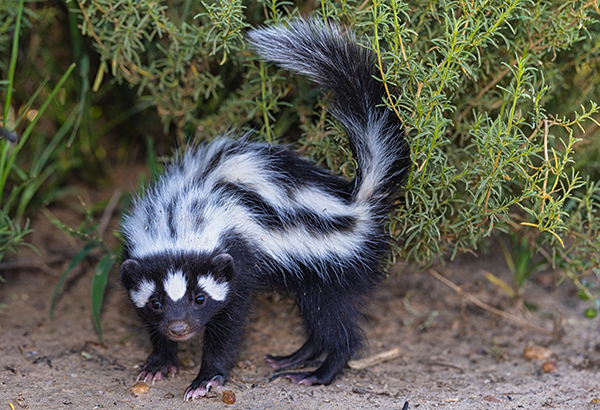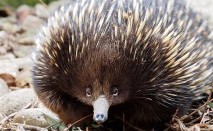
Category: Mammals

For those of you reading this in North America, the zorilla (Ictonyx striatus), or striped polecat, may look like a skunk. But this striped, African weasel is a distinct species. With sharp teth and claws and a small stomach, the zorilla hunts effectively – and often. This predator is a little over 2' long, under 6" tall, and a terror to nearby rodents, snakes, birds, insects, or virtually any creature it can catch and eat. And if the zorilla comes across a larger, more dangerous animal, it has a way of dealing with those threats as well: a powerful anal spray that can cause irritation, burning, even temporary blindness in an opponent. This hungry and not-to-be-trifled with weasel can be found in virtually all dry climates throughout central to southern Africa.
Zorilla Related Links:

A 200 Million Year-old Iconoclast
If a defining trait of mammals is that they give live birth to their young, how do you explain monotremes? Monotremes are mammals that lay eggs like a reptile, rather than giving birth to live young. Living examples of these unusual animals can only be found in Australia and New Guinea today, though they used to be more widespread. A monotreme egg has less yolk for supplying nutrients than a reptile egg, and when a young echidna or platypus hatches, it is very tiny and less developed than its reptile counterpart. But monotreme babies are able to grow and thrive because their mothers stay with them, lactating to supply vital nutrients for their growth - just like other mammals!
Learn more >>
 Discover Animals is a web-based educational resource offered by the NAIA
Discover Animals is a web-based educational resource offered by the NAIA